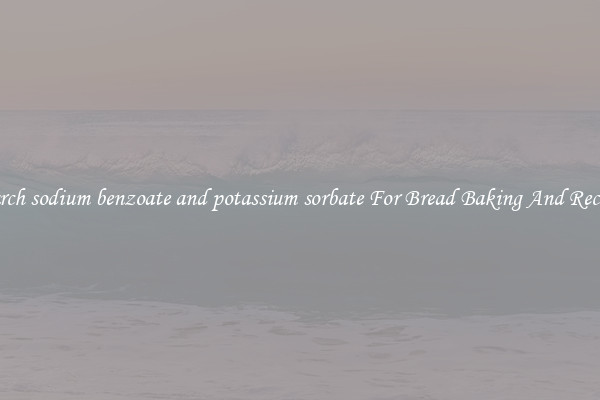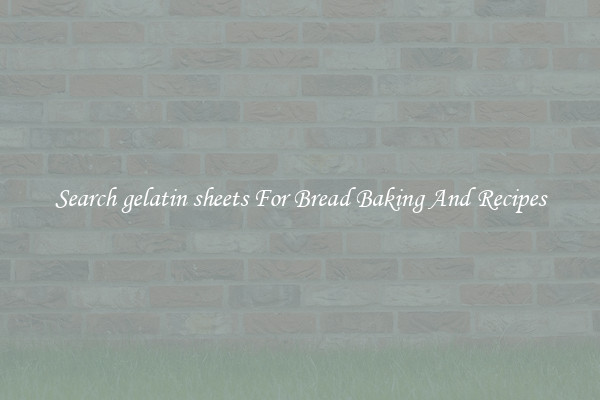Search sodium benzoate and potassium sorbate For Bread Baking And Recipes
Sodium benzoate and potassium sorbate are two common preservatives used in the food industry, especially in bread baking. These preservatives are added to bread to inhibit the growth of mold and yeast, extending the shelf life of the bread.

Sodium benzoate is a synthetic preservative that is commonly used in acidic foods like condiments, carbonated beverages, and pickles. It is generally recognized as safe by the FDA when used in small amounts. When it comes to bread baking, sodium benzoate is effective at preventing mold growth, which can occur in bread that is stored for an extended period of time.
Potassium sorbate is another preservative that is often used in bread baking. It is a naturally occurring compound that is found in many fruits. Potassium sorbate is also effective at inhibiting the growth of mold and yeast, making it a popular choice for bread manufacturers.
When using sodium benzoate and potassium sorbate in bread recipes, it is important to follow the recommended guidelines for usage. These preservatives should be added in small amounts to the bread dough to ensure that they are effective at preserving the bread without affecting the taste or texture.
There are many bread recipes that call for the use of sodium benzoate and potassium sorbate to help extend the shelf life of the bread. These preservatives can be added to both commercial bread mixes and homemade bread recipes to ensure that the bread stays fresh for longer.
Overall, sodium benzoate and potassium sorbate are valuable preservatives that can help keep bread fresh and delicious. When used correctly, these preservatives can ensure that your bread stays mold-free and tasty for longer periods of time, making them a valuable addition to any bread baking recipe.

View details

View details

View details

View details








